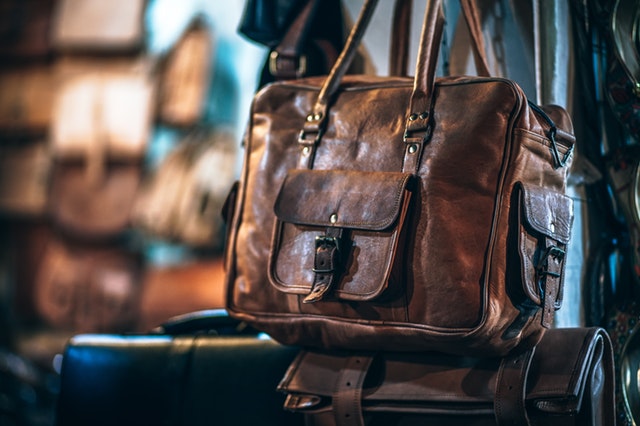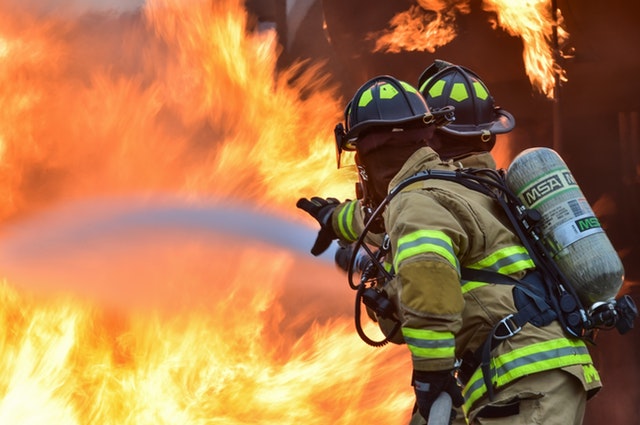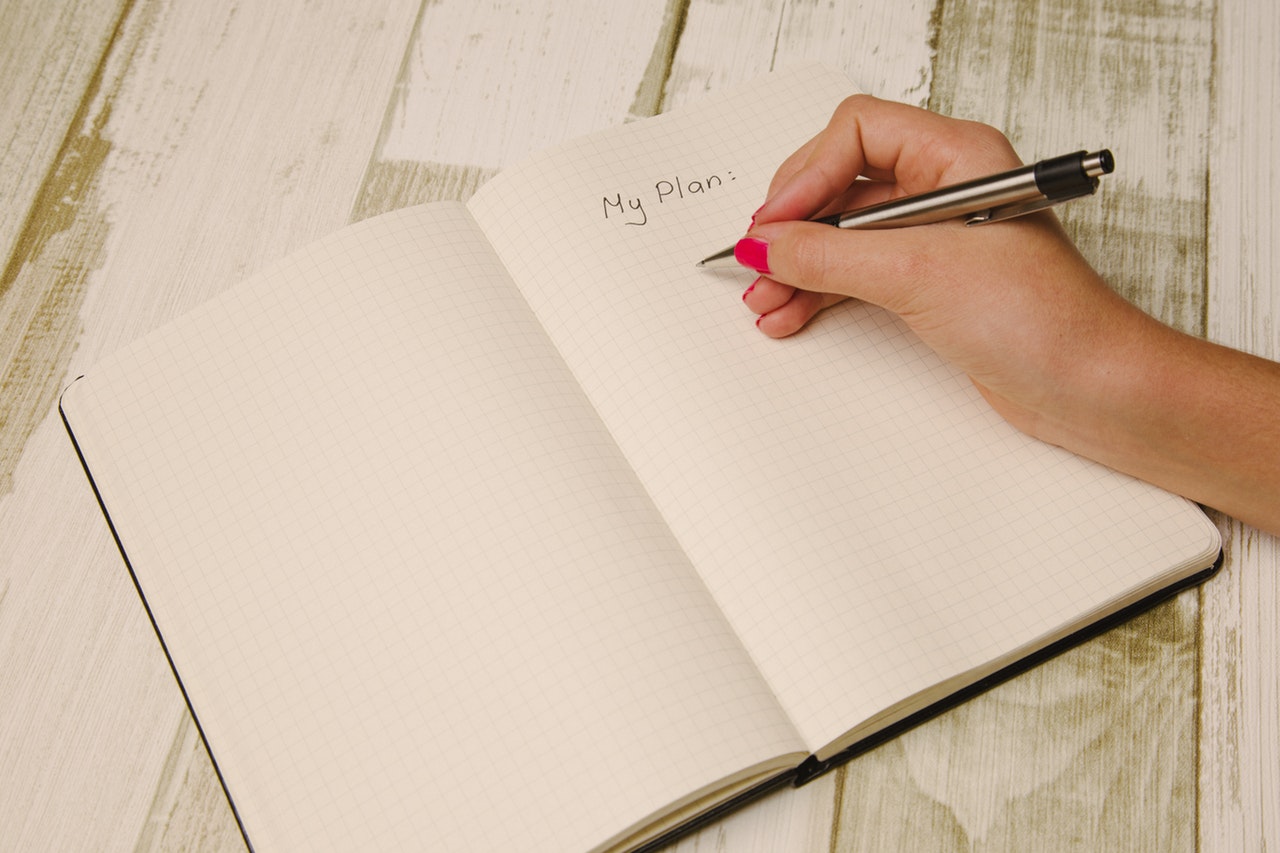By Mason Crane-Bolton
As the last days of a warm and sticky New Jersey summer fade into a cooler fall, we are reminded of all the lovely seasonal changes‚ the bright green leaves turn to flame-like colors before browning and falling, the lighter summer clothes are changed out for warmer seasonal wear and we finally turn off our air-conditioners and hope for a few weeks of respite before we turn on our heaters. We also, however, remember the less happily anticipated changes‚ the leaves to rake and the gutters to clean, the coming chillier months, and, of course, hurricane season followed by blizzards, ice, and sub-freezing temperatures.
While New Jerseyans across the state deal with rain and flooding from tropical storm Gordon and wait to see what Hurricane Florence will bring, now is the perfect time to think about our disaster preparedness. All too often we put off thinking about disaster preparedness until the danger is at our doorstep in the form of a storm, fire or flood. But don‚ wait until the next hurricane warning to be prepared! September is National Preparedness Month and it‚ the perfect time to make sure you‚ ready for disasters big and small that can happen now or any time of year.
![]()
Displacement
Do you know where you’ll go? During a disaster you may have to leave your home and find temporary shelter. Whether there’s a mandatory evacuation or you just lost power or heat, you may be temporarily forced out of your home. Regardless of why, there will inevitably be lots of stress and chaos going on surrounding a forced relocation even if temporary, so it’s best to have a few planned locations in place.
Do you have local family or friends you could stay with for a short time? For some people this may be an easy solution for some emergencies (e.g., losing heating or power in your home), but may not be suitable for wide-ranging disasters like hurricanes and intense blizzards. If you do elect to stay with family or friends come up with a plan together to ensure you’re all ready for what your disaster preparedness plan looks like, including how you will get to your temporary lodgings, where you will sleep, and whether there are any accommodations that need to be made for you (e.g., keeping animals away or giving yours a place to stay, clearing enough space for you to easily move about the space, and access to bathrooms for people with mobility issues).
If staying with family or friends is not an option, does your community have shelter for emergency situations? Although this may not be available for an emergency such as a house flood, learn about your community’s emergency shelter plan for natural disasters and follow the directions given to you by emergency and rescue personnel. If you don’t know your local shelter or evacuation shelter during an emergency call 2-1-1 or visit www.nj211.org or www.211.org. While local services may be down or you may not know the phone number for local emergency services, you can always call 2-1-1, free of charge, to connect to a person who will help you find help or shelter in an emergency or disaster.
Evacuation
What will be your evacuation plan in case of a disaster? Learn your area’s evacuation route and plan with family and friends how you will evacuate if you need to. Coordinate and plan to carpool if possible. If you or someone you know has mobility issues plan with this in mind. Anyone who has or cares for someone with a disability or mobility issue should register at the Register Ready, New Jersey’s Special Needs Registry for Disasters, here at NJ Register Ready. Registering will help alert residents or caregivers when an evacuation has been ordered and will inform emergency personnel of your needs so they can better serve you during a disaster or other emergency. Please note the website and state still urge citizens to make their own plans for emergencies and disasters and to rely on those plans first and foremost.
In case of a natural disaster prediction like a hurricane or blizzard, don’t wait until the last minute to leave the evacuation area. The longer your wait the more difficult it may be to leave the area as more people evacuate and transportation services and public transit shut down. If you have a car you should plan to have at least three-quarters of a tank of gas in your vehicle before a storm‚ don’t wait until the lines are long and gas is scarce to fill up your car.
If you have pets make sure to take them with you when you evacuate. If possible, plan in advance where your pets will go if you need to leave your home suddenly. Also, practice evacuating your animals so you’ll be able to move them more easily in a true emergency. Evacuate your pet with leashes/harnesses and/or carriers. Do not bring your pets unleashed and/or uncontained, even if they aren’t at home. And again, always listen to emergency and rescue personnel and follow their directions in an emergency, following directions helps keep you and emergency personnel safe.
Food
During a disaster stores may be closed and you should plan accordingly. The minimum recommended emergency food supplies by FEMA is 3 days worth of food per person. If you can, however, it may be better to keep roughly a week’s worth of food in your home in the event of a major storm or disaster.
Canned and jarred non-perishable goods are particularly good for emergencies. In general, canned foods and many jarred foods take several years (or longer) to be considered inedible and don’t require electricity to stay good, unlike refrigerated or frozen items. Foods to consider might be canned beans, vegetables, fruits, and meats, peanut and other nut butters, nuts, and dried fruit. Don’t stock foods that require cooking as part of your emergency food, because you may be unable to cook during an emergency. Also keep a non-electric can opener handy so you’ll be able to open cans during a power outage.
For those who may find it difficult to purchase a larger quantity of emergency food all at once, start early and build slowly. Add one or two cans of emergency food at a time‚ this will add cents onto each grocery bill rather than a larger amount of money all at once.
If you’ll be bringing pets with you during an evacuation, make sure to bring your pet’s food with you (as many days’ worth of food as you’ll need for yourself) as well as any leashes/harnesses, medications, carriers, and maybe a toy or two for comfort.
Gathering Your Essentials
In the event of an approaching natural disaster things will be chaotic and it will be easy to get lost in the preparations of trying to have everything done. Before a storm hits and things gets too chaotic, make sure you have a suitcase or backpack ready in one location in case of evacuation, filled with everything you’ll need for at least a few days. Put a luggage tag with your name and phone number on everything you take with you.

Keep any medications or other daily needs (glasses, mobility assistance aids, shoes, etc.) in the same area of your house, preferably by your packed luggage. Make sure the clothes you pack are comfortable and weather appropriate. Keep your medications filled and check with your pharmacist if you’re eligible for an emergency refill before a major storm.
Keep at least 2 flashlights in easily accessible areas (not down in the basement or hidden at the back of a dark closet). Regularly check that each flashlight is working and has fresh or working batteries with backup batteries available. In addition to a flashlight, consider keeping a battery or crank-powered radio on hand. Having a portable radio that doesn’t require an external electrical source is extremely useful to listen to important weather bulletins and updates when you don’t have power (a list of frequencies for NJ can be found at www.nws.noaa.gov).

Home Safety
Being prepared and ready for disaster isn’t just about natural disasters occurring outside the home. It’s equally important to be prepared for disasters that may occur in the home, such as fire, gas leaks, and flooding.
To help prevent fire, make sure you have a working carbon monoxide detector and smoke alarms for each floor of your home. Test each alarm once a month to make sure the batteries and alarms are both working. Keep a fire extinguisher in your kitchen and learn how to use it. Also make sure your fire extinguisher is charged and up-to-date. Be sure to have it recharged after each use or by the date on the extinguisher‚ check your fire extinguisher’s gauge (located at the top by the trigger) at least once a month to see if your extinguisher is optimally charged. If your home uses gas for heat or cooking, learn how to turn off your gas in an emergency. If you suspect a gas leak in your home, exit immediately and call the proper services.
To alarm you in case of flooding, consider purchasing a flood detector that will emit a loud beeping noise when it comes into contact with moisture. Remember, flooding and water damage can occur in any home from a burst pipe, leaky roof or just oversaturated ground after a storm, not just those near water!
Power outages and downed electrical lines are another concern and are common after big storms and natural disasters. For many of us this is an inconvenience, but for others who use electrical medical equipment this can be dangerous or even deadly. If you or someone in your home uses electrical medical equipment, contact your power supple company. You may be eligible for priority reconnection in the event of a power outage. In addition, remember to be careful of reduced visibility both outside and in the home during a power outage, and use flashlights instead of candles to minimize risk of fire. Remember to never walk or drive over downed electrical lines and to be careful not to walk or drive through any puddles where an electrical line has fallen.
Important Documents
If possible, take any important documents that could be destroyed in a disaster, such as your driver’s license or other photo identification, passport, Social Security card(s), birth and/or marriage certificate(s), insurance, important photographs (both personal and those for insurance purposes), and any other important papers.
In addition to physical copies, take photos or scan your documents and save them to a flash drive or portable hard drive. It’s also a good idea to make a copy and give it to your partner or a trusted family member or friend. Remember to treat your electronic copies just as securely as you would your original documents. Keep your flash drive in an easy-to-find location so you can quickly get it in the event of an emergency.
Financial
A disaster can mean a financial hit. Beyond the risk of damaged or lost property, there’s also the risk of interrupted income through disruptions in mail service. But there are ways to prevent financial straits through either damage or an interruption in funds.
To prevent financial repercussions from property damage make sure you know your insurance policies. Check your insurance policies to be familiar with what your policy may or may not cover. This may be insurance for your home, car, or items. Even if you rent and don’t have a car, purchasing insurance for your personal property through renter’s insurance may protect you in the event of a disaster. Know your insurance companies, their phone numbers and your policy numbers.
In the event of a natural disaster mail service may be delayed or interrupted. Even in the event of a personal disaster, such as a house flood or fire, you may have difficulty receiving your mail if you need to temporarily relocate. For those relying on mailed income, such as a pay check or Social Security check, this can cause difficulty in affording immediate daily necessities, with potentially disastrous consequences. Instead of relying on paper checks, consider switching to direct deposit to avoid the risk of being temporarily without funds. Direct deposit is much less likely to be affected by a natural disaster than mail service.
If you have any additional income at the end of the month make sure to put some into an “emergency fund.”  Plan to have some cash or coins ready in the event of a natural disaster, when ATMs and credit card machines may be down. If a disaster occurs you’ll be more secure and less anxious with some emergency funds readily accessible for the immediate and longer term future.
Create a Plan & Communicate
You know where you’ll go and what you’ll do. You’ve stocked your pantry with emergency food supplies, your medications and documents are in a safe and accessible place, your detectors are working and your flashlights are hanging in an easy-to-find location. What’s next? Letting everyone else know your plan!

Talk with the members of your household, or family and friends, about what you’ll need to do and what you’ll need help with during a disaster. Remember‚ if you don’t communicate the plan, no one knows the plan!
Coordinate your plan with the rest of your household, family, or friends. Make sure everyone has a written copy of the plan and knows where it is. Know who will be involved, where you’ll go if you need to evacuate and who’s responsible for what. Make sure your plan has basic information for every person, such as full name, phone number, address, and any medical conditions you may need to be aware of. Also keep the phone numbers for emergency services in your plan and the number of someone outside the disaster area you can keep up-to-date with your location and any problems you may have. Make sure your plan has a protocol you can follow in a disaster and alternative options in case something goes wrong. Revisit your disaster plan every 6 months to keep it up-to-date.
Now you’re ready to go!
We all hope to never need our emergency plan, but don’t wait until you need a plan to make one! Remember, the key to staying safe is being prepared and the key to being prepared is creating a plan and sharing that plan with others. Now go share your plan with your friends and ask them to create their own! By asking others to be prepared we help our friends and our communities in times of disaster.
To learn more about National Preparedness Month, look at Ready.gov’s website at www.ready.gov/september¬† (available in 13 languages).
Important Websites and Phone Numbers
‚Register Ready, New Jersey’s Special Needs Registry for Disasters’ homepage and registry link: NJ Register Ready
National Preparedness Month homepage: www.ready.gov/september
NOAA Weather Radio All Hazards, NJ frequencies: www.nws.noaa.gov
New Jersey’s 2-1-1 website: www.nj211.org
National 2-1-1 website: www.211.org
Free and confidential 2-1-1 phoneline, accessible 24/7, 365 days: 2-1-1 (phone number)
If you have feedback or would like to be part of the conversation, leave us a comment below or email us as office@njfoundationforaging.org.
Come back for our next blog! New posts are published on the first and third Thursdays of each month.
Mason Crane-Bolton is Communications Manager for the New Jersey Foundation for Aging. His writing has appeared in Epiphany, UU World, To Wake/To Rise, and others.

